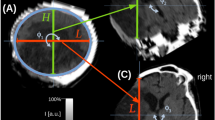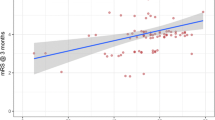Opinion statement
Malignant middle cerebral artery infarction is associated with up to 80% mortality due to ischemic edema and brain herniation. No medical therapy has proven its efficacy in efficiently and durably reducing brain edema and improving patients’ outcome. Decompressive surgery by a large hemicraniectomy with durotomy has been suggested as a life-saving emergency procedure. However, because of the lack of established prognostic criteria, the fear of severe and “unacceptable” residual disability in surviving patients, and the impossibility of considering the opinion of the patient at the time of decision, there was no consensus regarding this surgery. Recently the results of a pooled analysis of three European randomized trials (DECIMAL, DESTINY, and HAMLET) of early (≤ 48 hours) decompressive large hemicraniectomy in patients less than 60 years of age showed that, compared with medical therapy alone, there was a 50% (95% CI, 33%–67%) absolute risk reduction (ARR) of death, with more patients surviving with a slight to moderate disability (modified Rankin score of 2 or 3) (ARR of 23% [95% CI, 5%–41%]) or with a slight to moderately severe disability (modified Rankin score of 2, 3, or 4) (ARR of 51% [95% CI, 34%–69%]). About 5% of all patients in each therapeutic group were left with a severe residual disability (Rankin 5). These data indicate that early decompressive hemicraniectomy should be considered and fully discussed with the relatives of selected patients with a malignant hemispheric infarction.
Similar content being viewed by others
References and Recommended Reading
Simard JM, Kent TA, Chen M, et al.: Brain oedema in focal ischaemia: molecular pathophysiology and theoretical implications. Lancet Neurol 2007, 6:258–268.
Hacke W, Schwab S, Horn M, et al.: “Malignant” middle cerebral artery territory infarction: clinical course and prognostic signs. Arch Neurol 1996, 53:309–315.
Jaramillo A, Góngora-Rivera F, Labreuche J, et al.: Predictors for malignant middle cerebral artery infarctions: a postmortem analysis. Neurology 2006, 66:815–820.
Vahedi K, Vicaut E, Mateo J, et al.: Sequential-design, multicenter, randomized, controlled trial of early decompressive craniectomy in malignant middle cerebral artery infarction (DECIMAL Trial). Stroke 2007, 38:2506–2517.
Holtkamp M, Buchheim K, Unterberg A, et al.: Hemicraniectomy in elderly patients with space occupying media infarction: improved survival but poor functional outcome. J Neurol Neurosurg Psychiatry 2001, 70:226–228.
Schwab S, Steiner T, Aschoff A, et al.: Early hemicraniectomy in patients with complete middle cerebral artery infarction. Stroke 1998, 29:1888–1893.
Vahedi K, Hofmeijer J, Juettler E, et al.: Early decompressive surgery in malignant infarction of the middle cerebral artery: a pooled analysis of three randomised controlled trials. Lancet Neurol 2007, 6:215–222.
Jüttler E, Schwab S, Schmiedek P, et al.: Decompressive Surgery for the Treatment of Malignant Infarction of the Middle Cerebral Artery (DESTINY): a randomized, controlled trial. Stroke 2007, 38:2518–2525.
Hofmeijer J, Amelink GJ, Algra A, et al.: Hemicraniectomy after middle cerebral artery infarction with life-threatening edema trial (HAMLET). Protocol for a randomised controlled trial of decompressive surgery in space-occupying hemispheric infarction. Trials 2006, 7:29.
Cucchiara BL, Kasner SE, Wolk DA, et al.: Early impairment in consciousness predicts mortality after hemispheric ischemic stroke. Crit Care Med 2004, 32:241–245.
Oppenheim C, Samson Y, Manai R, et al.: Prediction of malignant middle cerebral artery infarction by diffusion-weighted imaging. Stroke 2000, 31:2175–2181.
Barber PA, Demchuk AM, Zhang J, et al.: Computed tomographic parameters predicting fatal outcome in large middle cerebral artery infarction. Cerebrovasc Dis 2003, 16:230–235.
Alberts MJ, Latchaw RE, Selman WR, et al.: Recommendations for comprehensive stroke centers: a consensus statement from the Brain Attack Coalition. Stroke 2005, 36:1597–1616.
Adams HP Jr, del Zoppo G, Alberts MJ, et al.: Guidelines for the early management of adults with ischemic stroke. Circulation 2007, 115:e478–e534.
European Stroke Organisation (ESO) Executive Committee, ESO Writing Committee: Guidelines for management of ischaemic stroke and transient ischaemic attack 2008. Cerebrovasc Dis 2008, 25:457–507.
Robinson RG, Jorge RE, Moser DJ, et al.: Escitalopram and problem-solving therapy for prevention of post-stroke depression: a randomized controlled trial. JAMA 2008, 299:2391–2400.
Schwab S, Schwarz S, Spranger M, et al.: Moderate hypothermia in the treatment of patients with severe middle cerebral artery infarction. Stroke 1998, 29:2461–2466.
Els T, Oehm E, Voigt S, et al.: Safety and therapeutical benefit of hemicraniectomy combined with mild hypothermia in comparison with hemicraniectomy alone in patients with malignant ischemic stroke. Cerebrovasc Dis 2006, 21:79–85.
Ramaswamy V, Mehta V, Bauman M, et al.: Decompressive hemicraniectomy in children with severe ischemic stroke and life-threatening cerebral edema. J Child Neurol 2008, 23:889–894.
Author information
Authors and Affiliations
Corresponding author
Rights and permissions
About this article
Cite this article
Vahedi, K. Decompressive hemicraniectomy for malignant hemispheric infarction. Curr Treat Options Neurol 11, 113–119 (2009). https://doi.org/10.1007/s11940-009-0014-8
Published:
Issue Date:
DOI: https://doi.org/10.1007/s11940-009-0014-8




